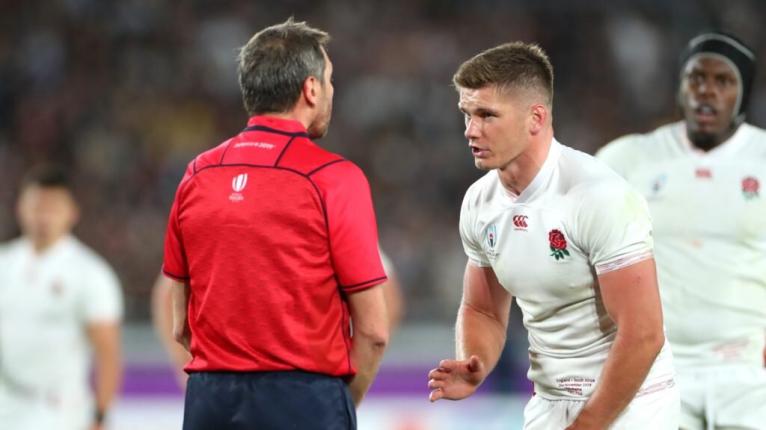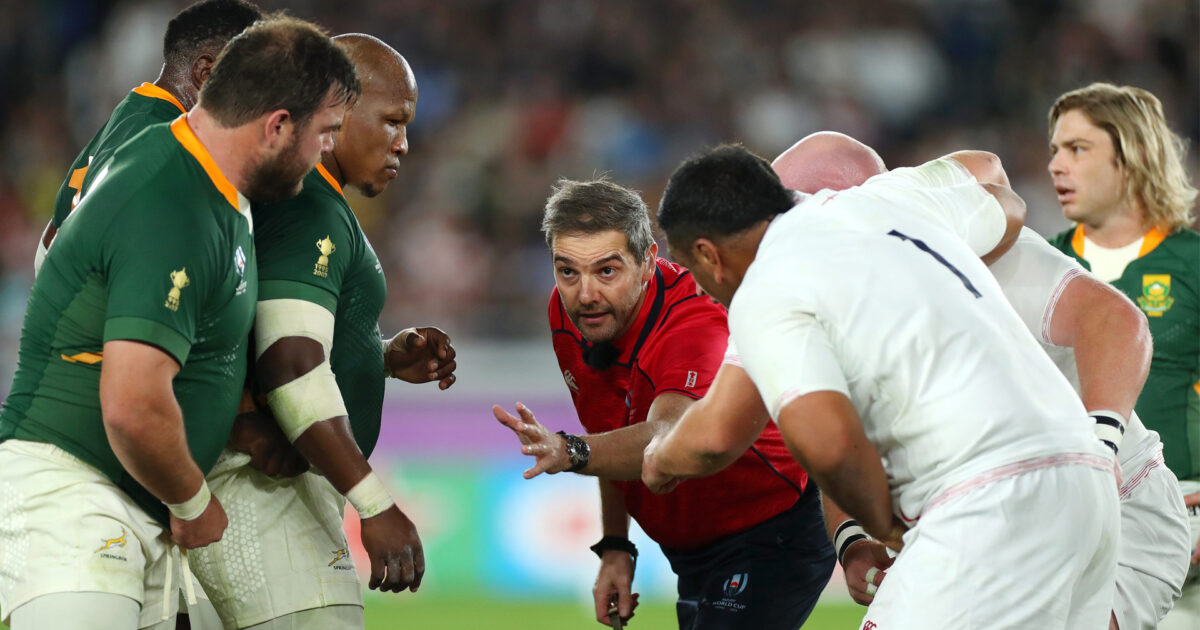'It went much deeper than that' - The psychological exploitation the Springboks used on Jerome Garces to help sway the World Cup final

An explosive new book has detailed the lengths Rassie Erasmus and the Springboks took to psychologically expoit referee Jerome Garces in the Rugby World Cup final with the aim of getting marginal decisions to fall their way.
The Springbok camp extensively researched the mannerisms and demeanour of leading referees, including personality traits, which could be manipulated to paint a picture in their favour. For Garces, it included lathering him with praise over his physique and fitness which they found would positively influence him.
Author Lloyd Burnard explained the layers of analysis taken by the Springboks on each referee to understand their interpretations of the rules.
“The research included analysis on how the referees blew games of rugby, from scrummaging to the dark arts at the breakdown and the offside line,” author of the new book ‘Miracle Men’, revealed in an excerpt published by SA Rugby Magazine.
“But it went much deeper than that.
“The level of detail in the refereeing reports included personality traits, all with the hope of finding an edge.”
The analysis led the Springboks to ‘role play’ match discussions with referees to practice and refine their approach to swaying the ref. The Springboks would role play at team meetings and at training sessions, practising what they would say knowing what their research had shown them.
“The report compiled on Garces, for example, revealed that he responded well to being complimented on his physical appearance.
“If the match was fast-paced, the Boks would make a point of praising Garces on his condition and his ability to keep up with the players, hoping to rub him up the right way.”

Each Springbok player was responsible for different aspects of the game, with hookers Bongi Mbonambi and Malcolm Marx overseeing the scums and lineouts to make sure that the Springboks complied with Garces preference which was that he ‘took kindly to sides that provided a clean set piece’.
“He [Garces] didn‘t want people wandering around aimlessly at lineout and scrum time; he wanted the players to be in their positions and ready to proceed with the game.
“He wanted structure, and the Springbok hookers would check in with him throughout the match to make sure they were in the right places at the right times for a set piece, doing their bit to make the game as clean as possible,” the book notes.
They decided on a ‘good cop, bad cop’ approach with Duane Vermeulen and Siya Kolisi in dealing with Garces during the final, helping Kolisi come across to Garces as the respectful captain as the ‘good cop’.
One of the more cunning tactics was to act subservient when speaking to the referee by bending down or kneeling when talking to match officials to give them the feeling of being more powerful or in control as they spoke down to players. They would bend down to tie shoe laces or feign being out of breath and bend down with hands on knees to inhale.
Burnard says even the management team devoted time to preparing for referees, likely more than any other team at the 2019 Rugby World Cup.










































































